Ten years ago, childhood friends Eben Badu, Rizky Lasehido, and Maru Asmellash joined forces to found The New Originals. What started as a creative output for their shared experiences and passions during a time when embarking on creative pursuits wasn't as encouraged as it is now has since turned into a multidisciplinary brand merging fashion with film, music, and community in refreshingly unconventional ways.
With The New Originals, TNO for short, thinking outside of the box is not just a slogan. Instead, it's the foundational mindset of a brand whose colourful ecosystem has created ripple effects far beyond the founders' native Amsterdam. From collaborations with the likes of Tema-based collective Free The Youth to Cape Town's Broke Boys and Barcelona's Voodoo Club, The New Originals are blazing their very own trail—one rooted in shared values of cultural heritage, excitement for creative talent, and dedication to their communities. As we approach the brand's 10th anniversary, we sat down with the three founders to dive into their decades-long journey of intentional brand-building.
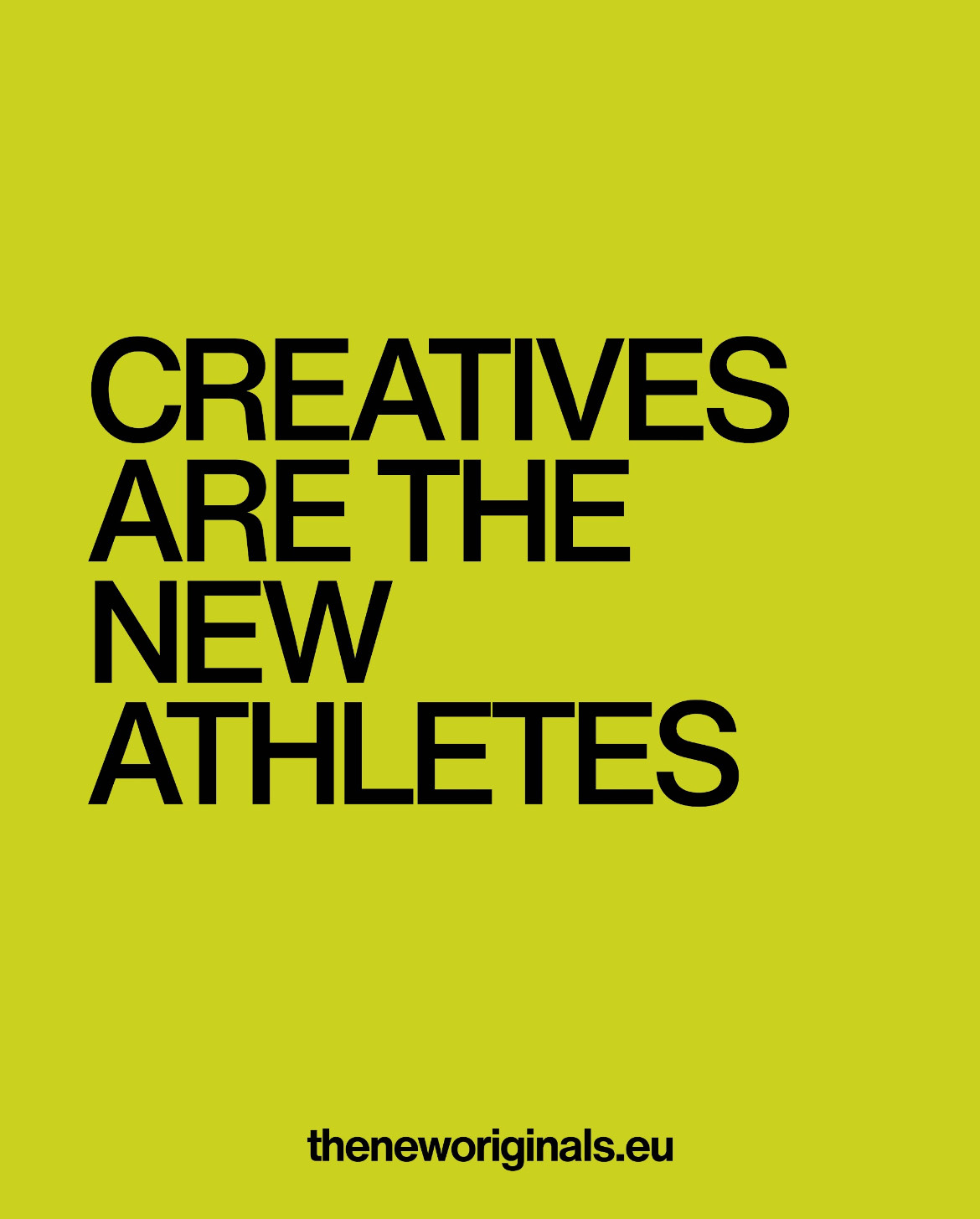
Deeds: We’re coming up on the 10th anniversary of The New Originals. Looking back at this past decade, how does it feel to have reached this milestone?
The New Originals: We're grateful to have made it to the double digits; that's an achievement to be proud of. Throughout all these years, the team expanded and went through many different phases that each taught us so much. Looking back, we had the early days, then the foundational years in the middle, and the phase we're in right now. They're all so different from each other.
We added new ways of working, tried a lot of things out, and learned so many things from distribution to finance and production—you name it. A decade feels long, but the most recent years have been the most intense. We're grateful to be here still, actively building and breaking the stigma that working with friends or family is too challenging.
Deeds: Speaking of challenges, what are some obstacles you’ve faced, and how did you overcome them?
The New Originals: When you get started and release your first drop, there are no expectations. You have the freedom to build from scratch, and everything you do is cool because it's a first. But once you're a few years in and others depend on you, pressures and expectations start growing. It's not just about having fun anymore; you have to provide.
The target shifts, and you operate from a different mindset where you ask yourself questions like 'can we do the same thing as last year, can we top it?' That's a challenge. A lot of the obstacles we've faced are part of running the business. Let's say a factory makes a mistake and we discover it too late, or we have stock that we need to clear by getting creative and printing something on top to sell still; those things are minor. Sometimes you have to absorb a loss. Bigger obstacles would be when we have ambitions that the market responds to differently.
Those are the more significant ones in our case, mainly because we're very active in B2B. It's an ever-changing industry where we constantly face new obstacles in terms of what the customer is buying, the direction in which the industry is developing and which influences are at play. As a brand, you have to be versatile and able to adjust.
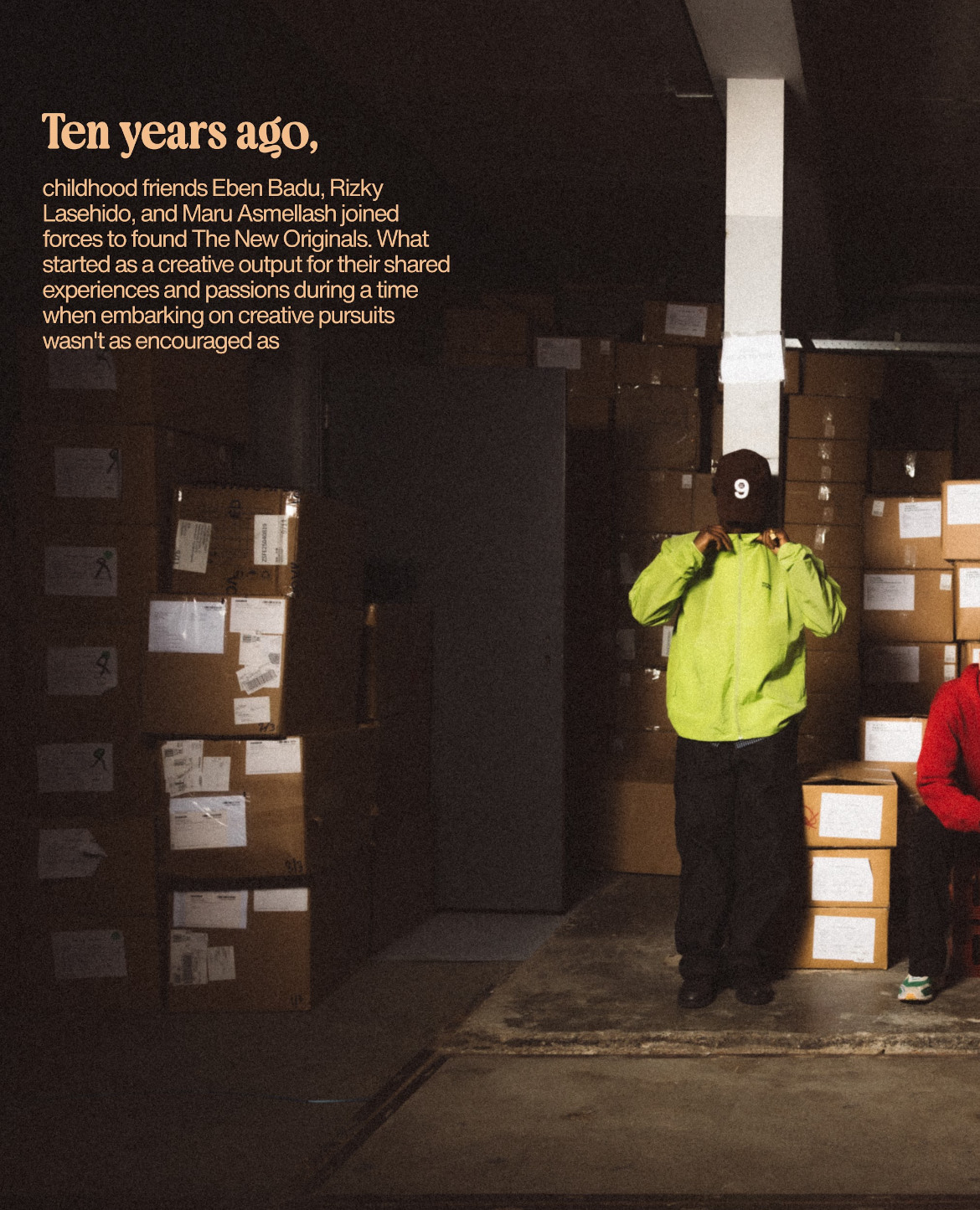
Deeds: What was your initial vision when you first started? Has that vision evolved?
The New Originals: We've always stayed the same course. We still talk about and stand for the same things, which is building a platform for creativity and young talent, being the builders of a stage that gives others room to perform. Those things are deep in our core. That core and that mission have always stayed the same, but the means or the context have changed a bit. There was a time when we said we would never do personal interviews because we wanted the brand to speak for itself, and now we're sitting here.
When you're building an organisation and people start to trust you, the game changes, and you need to give back. We also used to say we would never make clothing in simple colours like black or white, only in crazy and playful ones, but that changed as well. As time goes on, it's not strange that style, taste and mindset shift a bit. After all, we're 10 years older than we were when we first started!
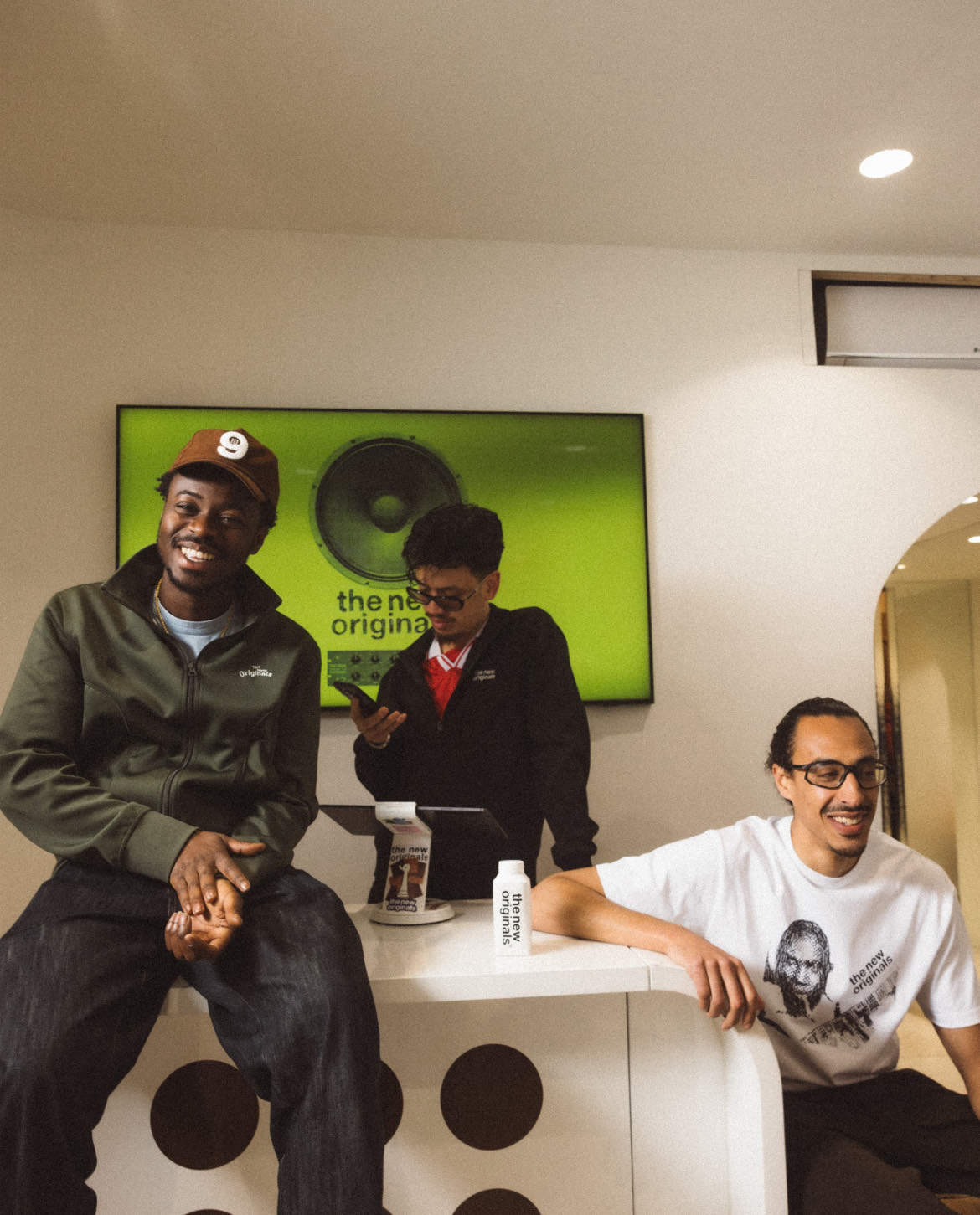
Deeds: Your slogan is Think Outside of the Box. How does your approach reflect this ethos?
The New Originals: If you look at the three of us, it's not just a business we're running or a brand we're building. It's not work, it's our life. The mindset of thinking outside the box starts with the drive to keep going no matter what. None of us is from an academic background, so we learn as we go. If you look at that process, it's a lot of trial and error. But that's also part of this ethos. And we want to spread the word that, no matter the domain or industry, great stuff can come from effort and daring to try new things.
How this comes back in the company is often in the type of decisions we make. We run our warehouse, for example. Thinking outside the box also applies to the subjects we discuss, which are close to us and our passions. Ty is a bit unconventional to some, like connecting chess and board games with fashion, showcasing our collection in a short film or being part of a festival, but we like to take risks with some of the things we do. These are all things that are unnecessary or uncommon if you think of what a fashion brand is traditionally supposed to be.
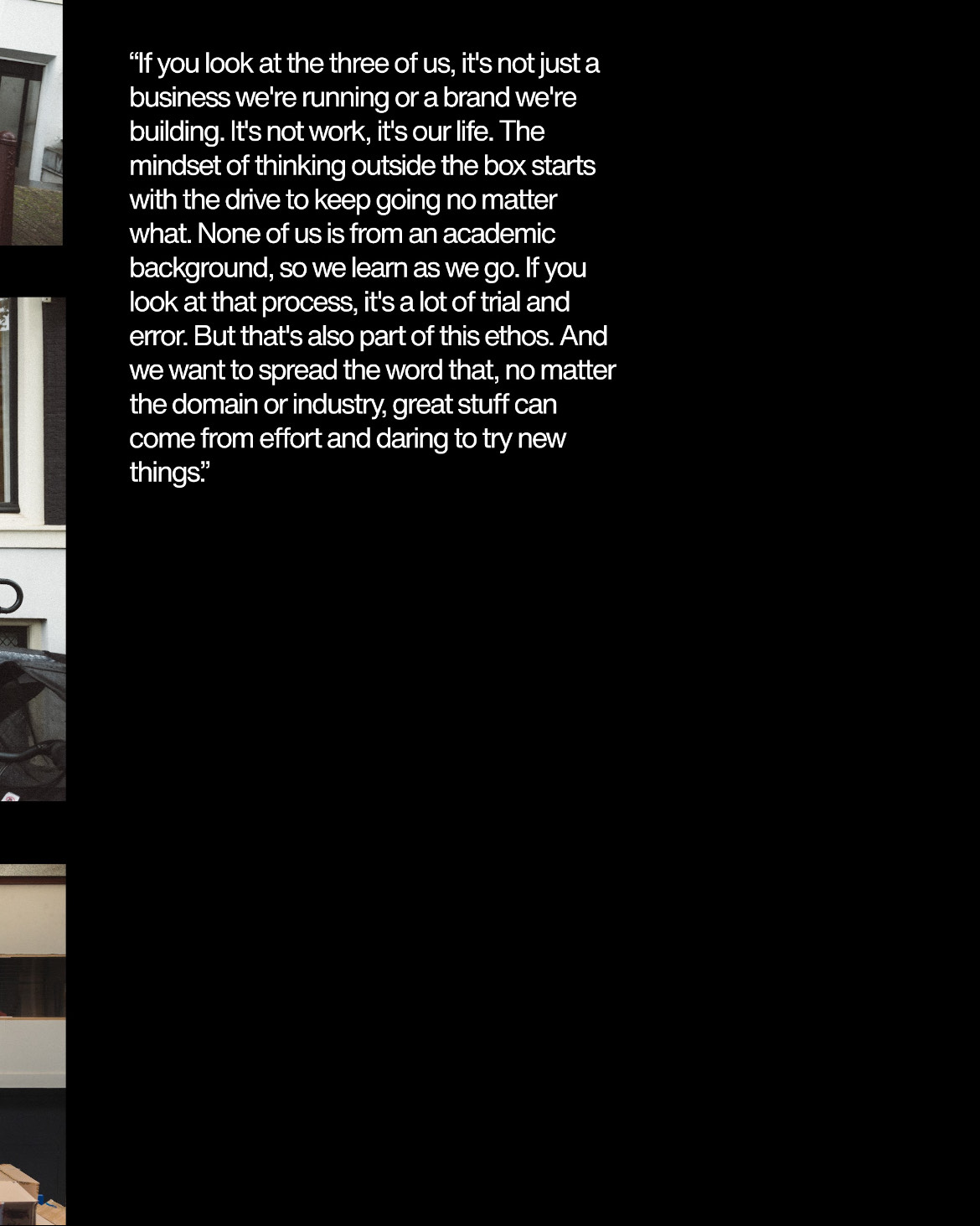
Deeds: On the subject of going beyond fashion, you built the TNO sound system in 2017. Where did that idea come from?
The New Originals: We built the speaker wall in 2017, but the sound system has a more extended history that began as a DJ collective until everyone in that collective eventually focused on their own paths. By building that wall, we didn't want to create a revival of this DJ collective but a reference to sound system culture, which has always been a part of our ethos and wanting to bring people together. At the time, it felt like sound systems were just reduced to DJs, which diluted the idea of where this culture originated from. Now, it's back in the mainstream conversation, and several brands have a sound system. We're super happy to see this rise in popularity again because we've used ours more in the last year than in the three years before that.
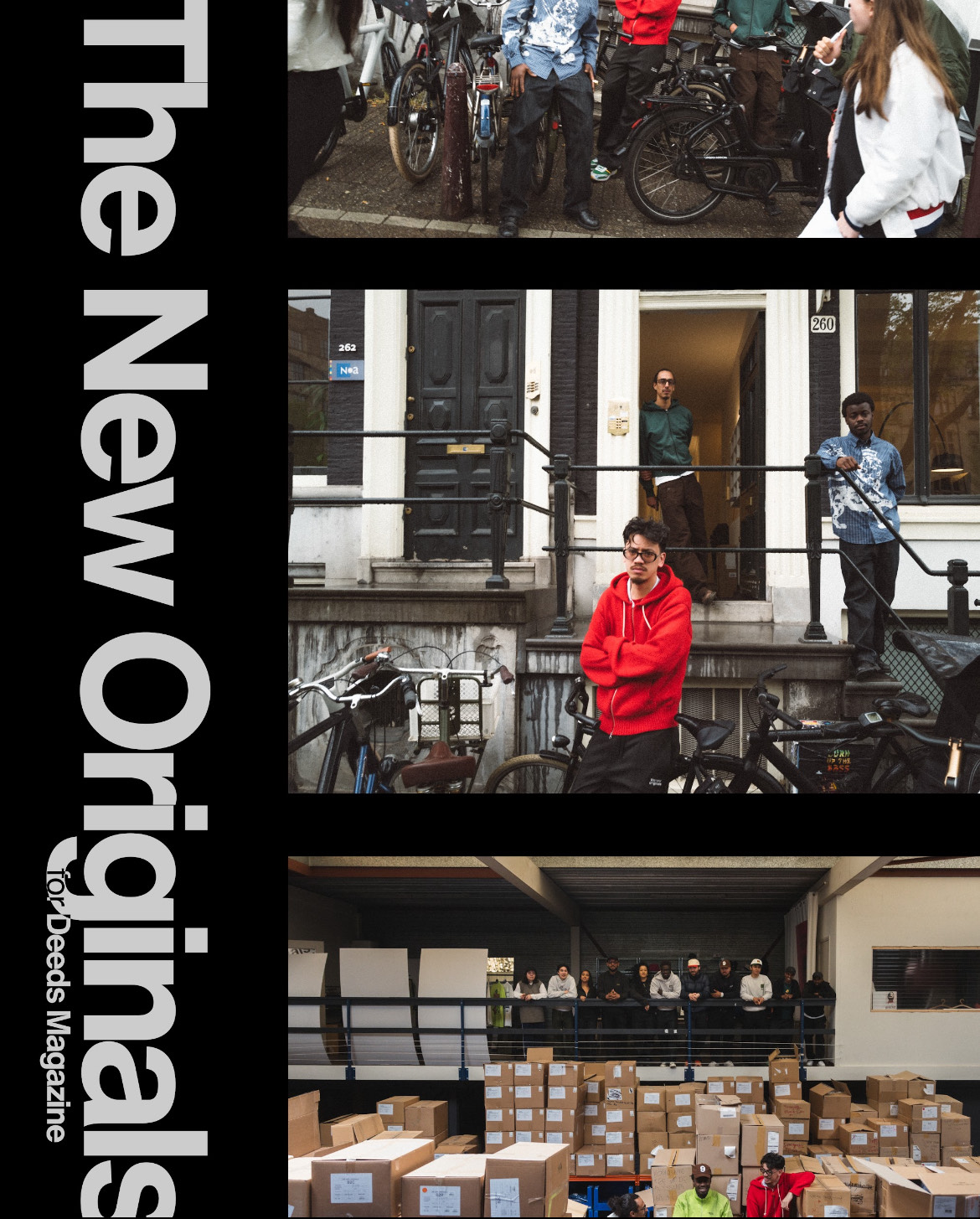
Deeds: We can’t talk about TNO without talking about Zeedijk. What does it mean to have your flagship store there?
The New Originals: We were very specific about this location. For context, you have Chinatown, the red light district and a lot of Amsterdam history there, but it wasn't always the destination that it is now. Patta made it the place to be, and then we got invited to be a part of Zeedijk 60 together with Bonne Suits and Sumibu. Zeedijk 60 was like an embassy for kids who didn't know where to go in the city centre. At that time, we were quite a small brand, so we gained a lot from having that shared physical space. What this street is to the kids now, that's what Kalverstraat and Nieuwe Dijk were for us 15 years ago.
Eventually, we started growing and doing things that required more space, like building a five-by-five life-sized chess set. Within the same year that we were still at Zeedijk 60, we opened our flagship next door because we needed the extra room. The store's opening day was beautiful and took over the whole street. It also felt like people were just as happy as we were to see us take that next step there.
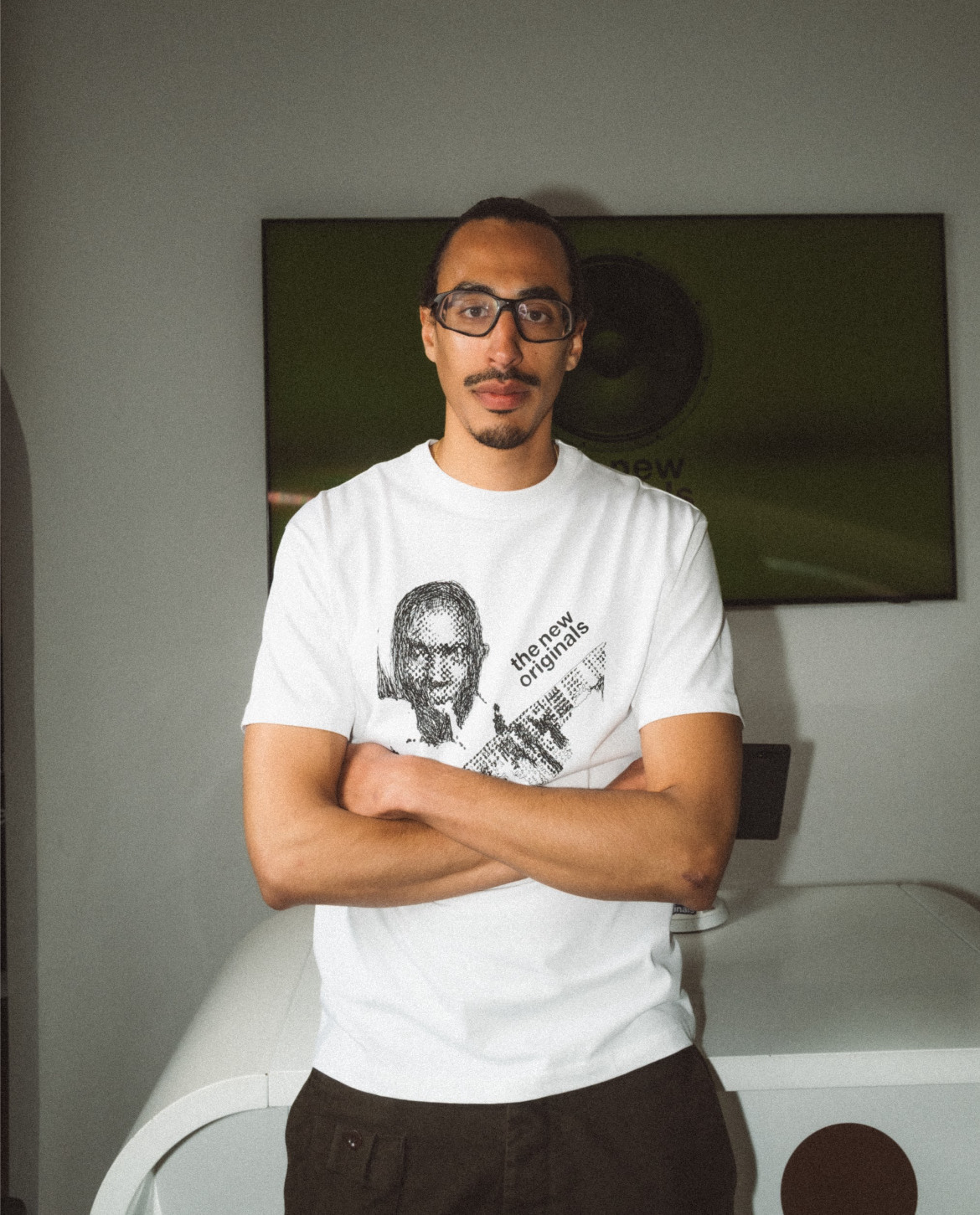
Deeds: As an Amsterdam-based brand, how important is it to represent your city globally?
The New Originals: Amsterdam and the Netherlands aren't exactly considered a top-tier country when it comes to fashion or clothing compared to other cities and countries. We're the underdog, but you can benefit from that misconception. When people think of the Netherlands, they also have a different image in their head than the three of us walking in. We have a different story to tell about this place we call home. We can show you something that you wouldn't see or find otherwise.
The first time we went to a Fashion Week was in Berlin, and we felt a sense of Dutch pride there. It was almost like we were representing our city. With all of these new emerging brands now, there's also this element of wanting to support each other and bring the whole gang. Going to a city like Paris and making people there realise that Amsterdam has character feels good. We have something to say and something to add.
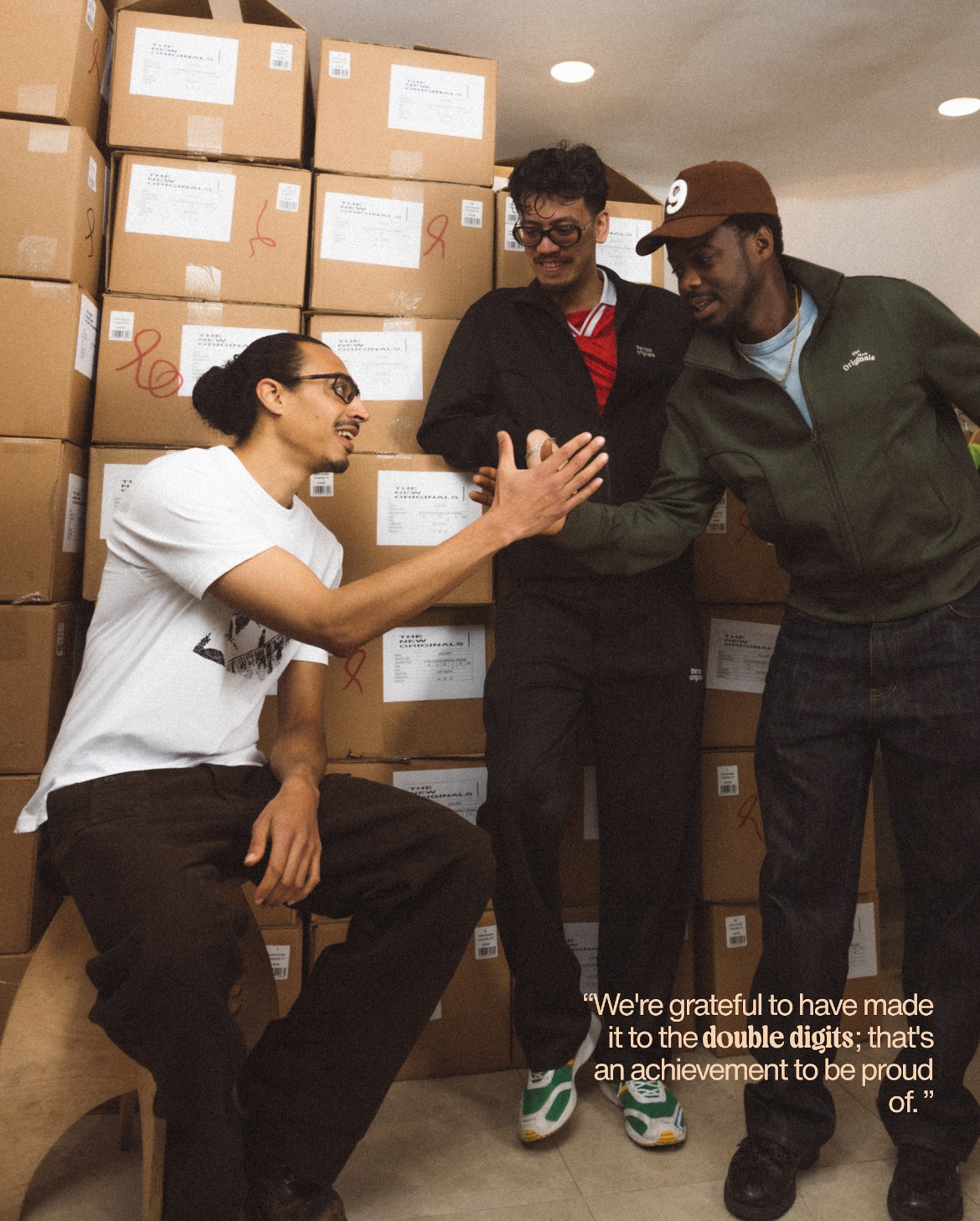
Deeds: Between the three of you, how do you split roles and responsibilities?
The New Originals: It's ever-changing because we keep growing and learning, but each of us has our strengths. There's Eben's creativity, natural feel and impulses, Rizky's focus on strategy and organisational processes, and Maru, who navigates a lot of our collaborations and conversations with third parties, is great at putting thoughts and ideas into words. Eben and Maru work on the concepts together in the beginning stages of a collection, while Rizky streamlines the processes. It's a balance of helping each other but also butting heads at times. Sometimes, spontaneous impulses can interfere with the processes, but they can also be such an impactful factor that they entirely change the course of a project for the better.
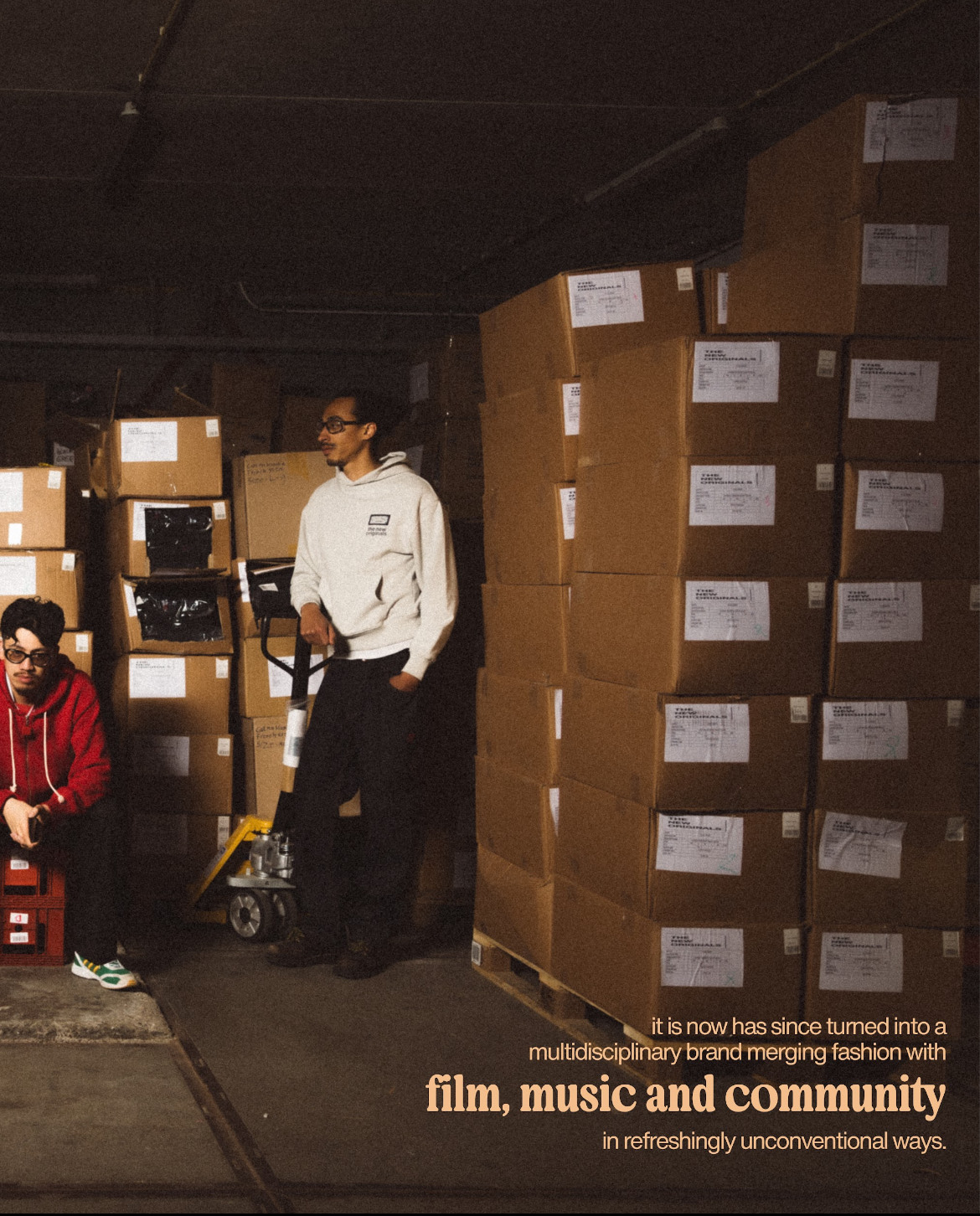
Deeds: Let's talk about your visual storytelling. From your SS25 campaign to the short films you've put out, your visuals are powerful and intentional. Why is it essential for you to visually expand the TNO story beyond just clothes?
The New Originals: Our ideas are visual first. They always say something about us and who we are. We didn't want to make the brand about us, but we did want to make it about the things that move us or are important to us. The culture, the lifestyle, the people—those are the main reasons why we're here. A lot of the visuals we create are made with starting talents. We need something, and we have the idea. There's a new talent that needs to make work - let's go. For them, it's a moment to work on their craft, and for us, it helps us bring our visions to life. These things are important to us because we don't know anything but telling stories together with the people who inspire us.
We're not fashion designers who are trained in the craziest cuts; that's something we're learning. We're also not the most skilled businessmen; we're still learning that as well. At our core, we're just storytellers who love to hang out and exchange. The first connection between us was our shared interests, which is what brought us together.
We have a lot of conversations about efficiency, where we discuss things like how much attention we want to pay to the visual identity versus how much time we spend on the essential but fundamental processes that a clothing brand needs to stay alive. Our message and our story can only be amplified if we keep the business alive and growing. We cannot make bigger projects if we don't grow. This may go back to the question about obstacles. The moment we lean more towards commercial, it feels like we need more storytelling, but when there's a lot of storytelling with less commercial success, we're like 'yo what are we doing, we're not a gallery'. There's always a balance to be found.
Deeds: Some of your most popular pieces are the CATNA designs. Did you anticipate how iconic it would become?
The New Originals: The slogan was an Instagram caption that Eben came up with for a post about a fitting day we organised with 150 young talents and artists from Amsterdam to showcase a new collection. We had set up this creative exercise—an experiment. Eben took a picture and wrote 'creatives are the new athletes' in the caption. From there, we eventually put it on a t-shirt and decided that it had to be a part of our collections moving forward. What's so special about it is that it wasn't intentional at all, and now it's become this whole thing. We learned that you can't plan or anticipate such an authentic impact. It just naturally became a part of the story.
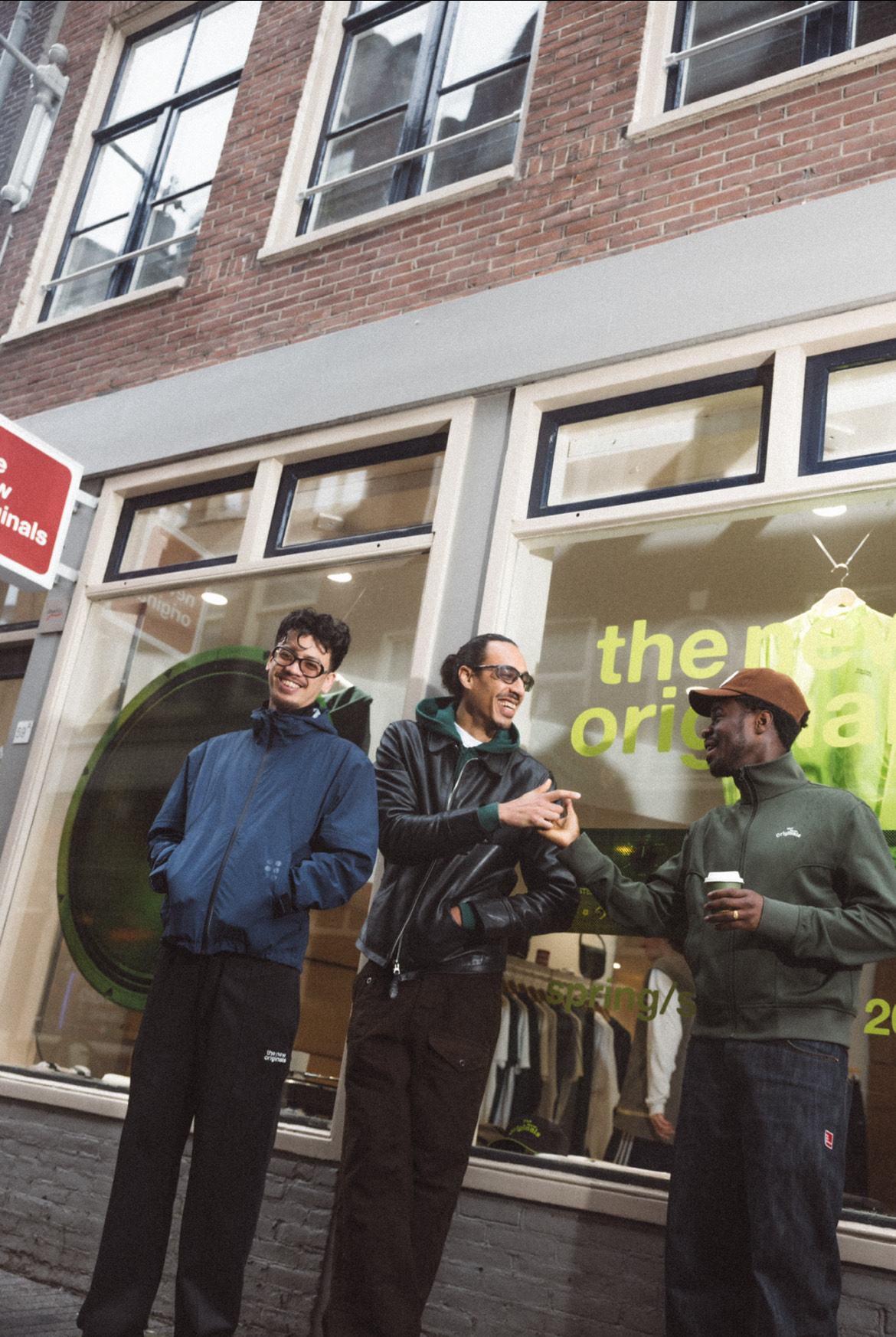
Deeds: Are there any dream collaborations you’re working towards?
The New Originals: We've collaborated with brands and collectives like The Voodoo Club from Barcelona, Free The Youth from Accra and Broke Boys from Cape Town. What's special about these collaborations is that neither side may be huge in terms of numbers. Still, we understand each other on some level because we're on the same mission and doing similar things, just in different cities.
Revenue and numbers, of course, matter, but for us, it's really about this ecosystem of creative people and collectives that are building something meaningful in their respective cities. You recognise yourself in the other. Those are the types of partnerships we want to keep expanding because there's so much substance beyond the product. Bigger brands come with nice opportunities, and we would like to grow in that direction as well, but those often feel more commercially oriented. We've just become very conscious of what fulfils us.
Deeds: As a brand that has always encouraged and stood for young creatives pushing the envelope, what word of advice would you give a young maker who is trying to build their own thing?
The New Originals: The red thread in a lot of what we've been saying is that the stories we tell or the things we capitalise on at times are part of who we are. Who you are is not something you run out of. You can try to be something else, but at some point, there's a limit. From our experience, taking inspiration from what makes you and where you're from is never-ending. You can keep telling those stories because it's something personal. With that, always stay grateful for everything you do. If you sell your first 10 t-shirts, be grateful for those 10, and that number might turn into 150 or 200 next time.
Deeds: If you had to choose one word that encapsulates TNO, what would it be?
The New Originals: Not one word, but CATNA - creatives are the new athletes. If we stick with one word, then Amsterdam.
There’s a creative flair and striking aura about how The New Originals operate. What seemingly started as an innocouous exploration of creative curisity has quickly blossomed into a decade-long movement deeply rooted in collectiveness and storytelling. From the humble streets of Amsterdam to prominent global stages, TNO is empahic proof that consistency begets rewards. As they venture further into prominence, we watch with a stern anticipation as they build a legacy with redefining creativity.
.svg)

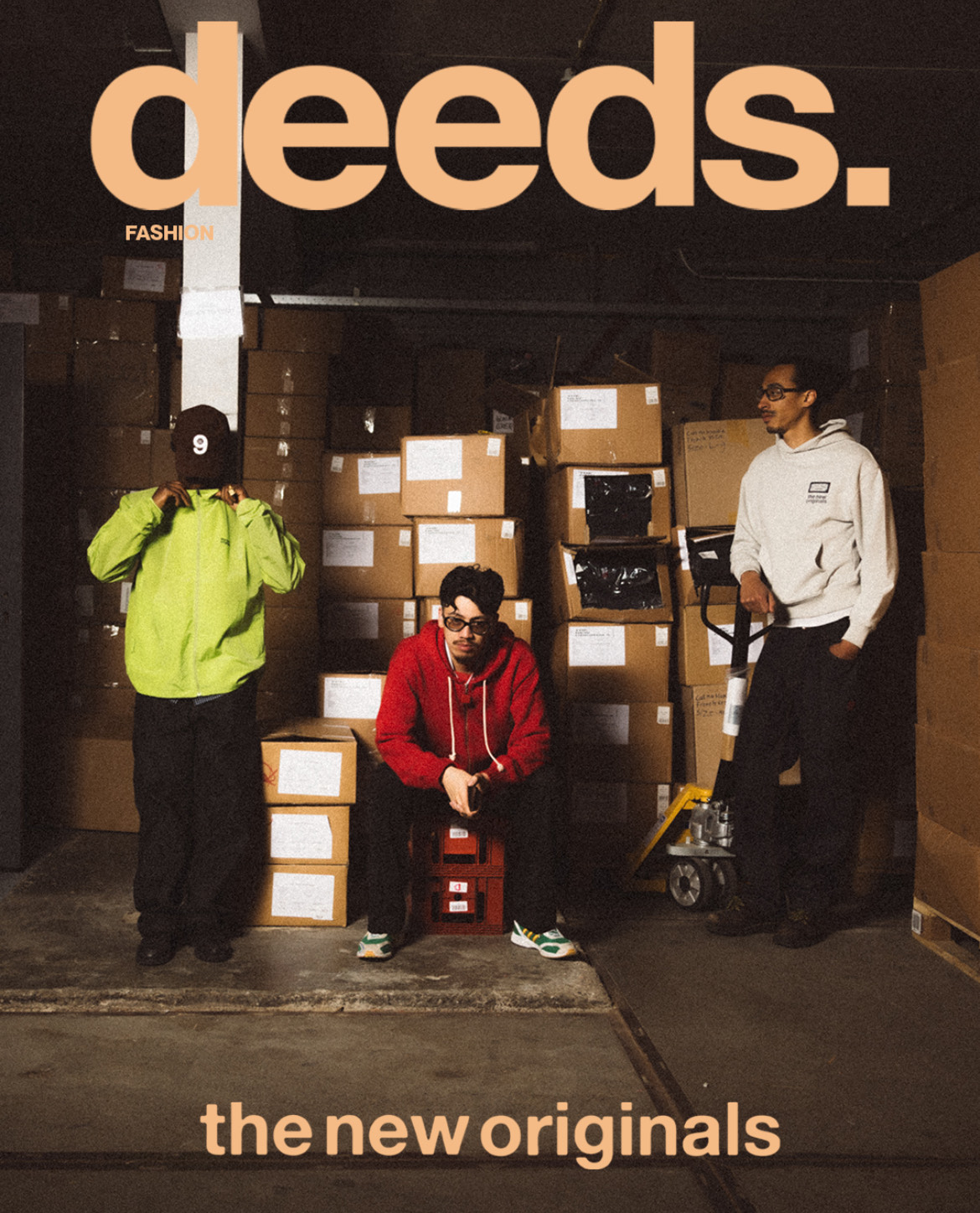

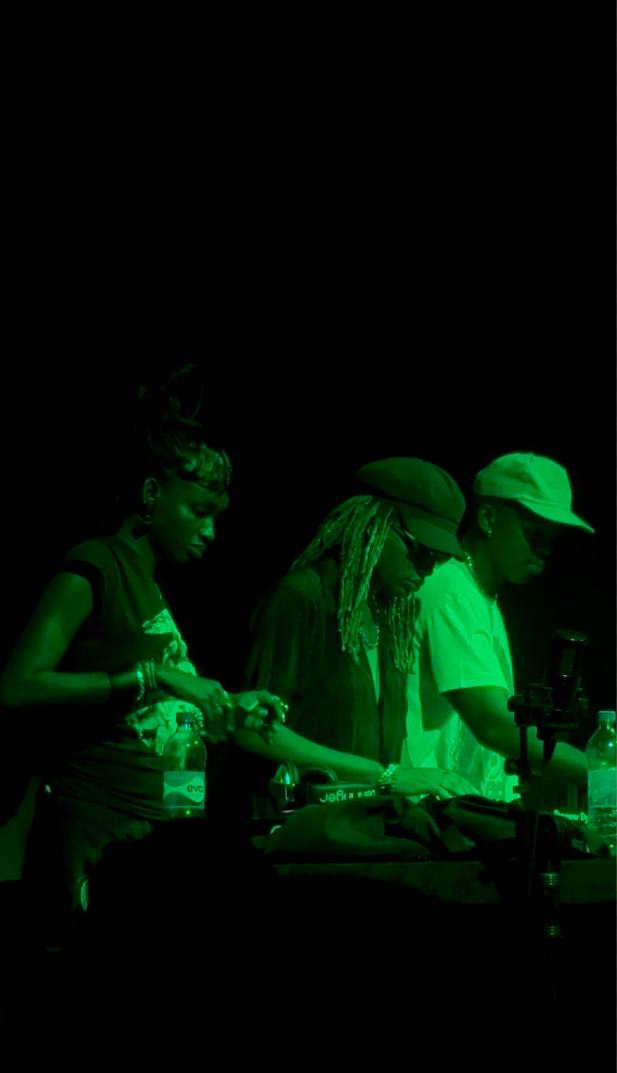
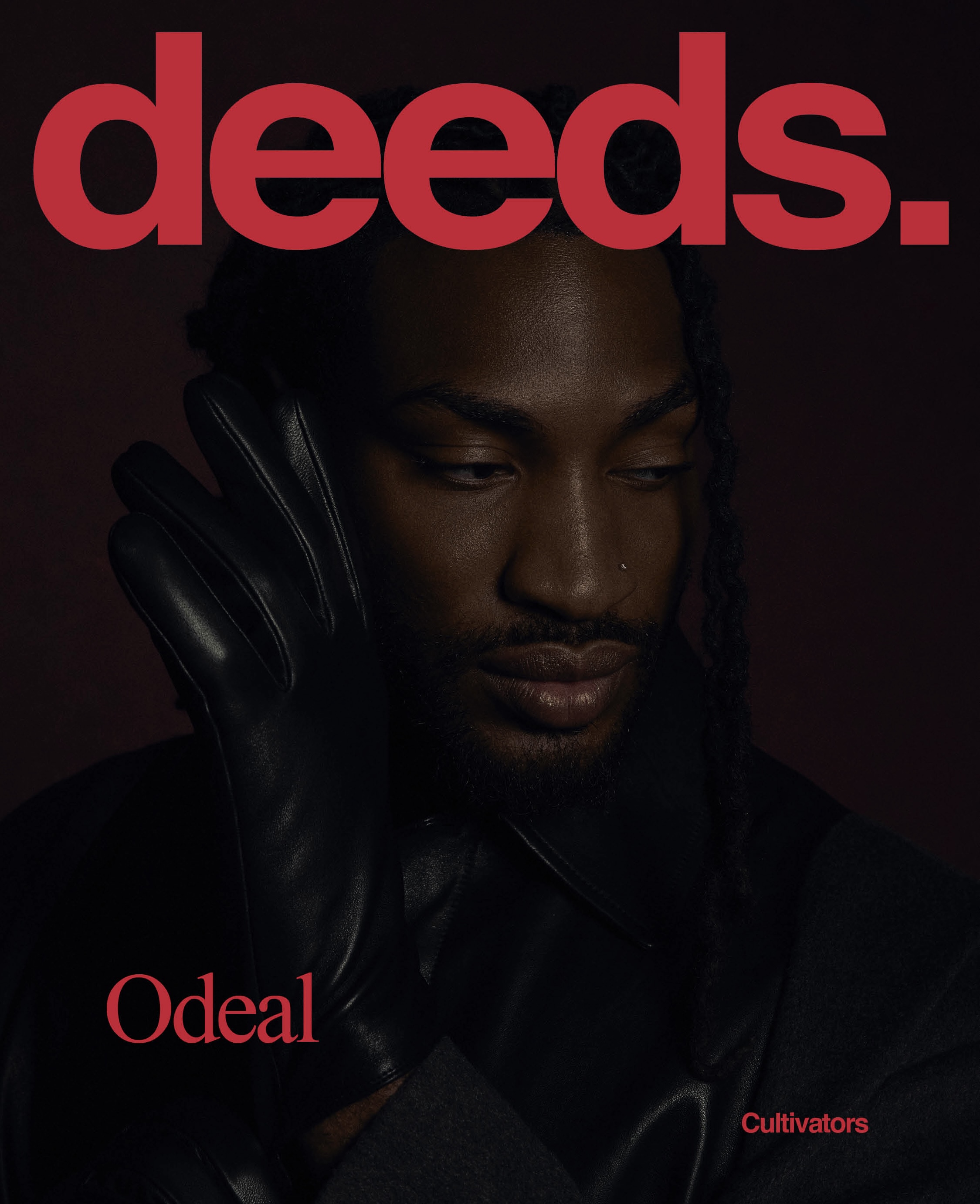


.png)

